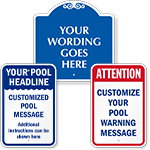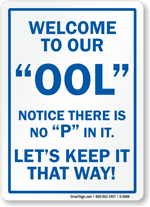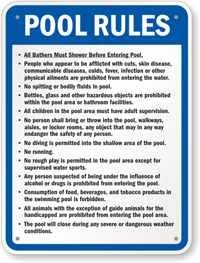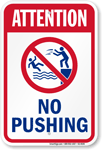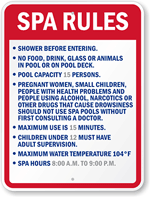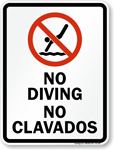4 common pool chemical mistakes (and how to avoid them)
When it comes to swimming pools, drowning isn’t the only danger. Something much less understood but just as deadly — chemicals used to maintain water quality — can also cause serious injuries or even death when not handled or stored properly. A new report from the Centers for Disease Control and Prevention reveals that nearly 5,000 people are injured every year in the U.S. in exactly this way.
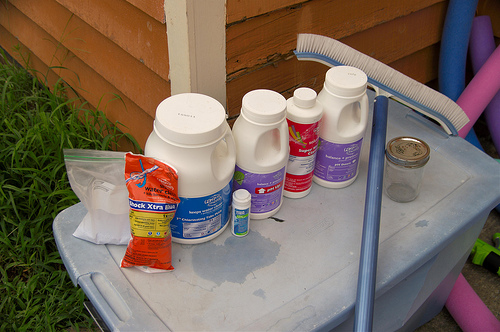
Drowning isn’t the only thing that makes pools dangerous – pool chemicals cause 5,000 injuries per year in the U.S. From Cal Sr.
How could this be? For starters, chlorine, one of the chief chemicals used for water quality maintenance, can also be highly toxic to humans. It was one of the main agents of chemical warfare used in World War I. Handled improperly, chlorine can quickly turn your backyard pool into a HAZMAT scene. Given this information, some may be tempted to forgo chemical use. But that would be a big mistake: Chemicals, especially chlorine, are the first line of defense against waterborne pathogens that can also cause serious injury and even kill.
The best solution is to treat your pool chemicals with the respect they deserve. They are powerful agents that, when used properly, do an amazing job. Here are 5 pool chemical mistakes to avoid.
- Storing improperly. Pool chemicals can be volatile. They should be stored in a cool, dry, well-ventilated place. For instance, an unventilated garage that’s prone to flooding is not a safe place for pool chemicals. Avoid direct sunlight and moisture. Both can turn your chemicals deadly. Additionally, keep liquid chemicals away from dry chemicals. Don’t stack them on top of each other. And always keep chemicals in the container they came in.
- Mixing chemicals. Just like any chemical, pool chemicals need to be handled with respect and care. First and foremost, this means NEVER mixing them. This is probably the most common mistake people make when it comes to chemicals. Not mixing doesn’t just mean not physically mixing them together. It also means having separate measuring cups for each chemical. If you use one measuring cup, you’re inviting a mixing disaster. Also, never mix old chemicals with new ones, even if it’s the same chemical. And make sure you store chemicals with lids tightly attached.
- Using lax safety measures. Part of respecting pool chemicals is taking the necessary safety precautions to prevent injuries. But mistakes happen. When they do, you’ll be glad you’re wearing rubber gloves and goggles to protect you. Other safety measures that need to be enforced included locking up your pool chemicals so kids can’t get to them.
- Ignoring instructions. Pool chemicals are labeled with explicit instructions from the manufacturer. The CDC says to follow them to the letter. In general, most pool chemicals should be applied directly to the pool water, not mixed with water first. Never apply chemicals when people are in the water.

